How do I deal with my 7-year-old brother who is hyperactive?
He always talks with a loud voice no matter how many times we tell him to lower his voice. Whenever I try to do my schoolwork he throws my things for ultimately no reason. When he watches TV or sees you using the phone, he has the urge to touch the screen and it would even reach the point where he would fight just to touch it. There are times when my brother behaves well when not at home but he’s a naughty monkey at home. He’s a late speaker so it’s kind of hard to have some good communication with him. I would like to know if there are certain games that can make him get distracted and not annoy us. Thank you in advance.
Sibling bonds are important and spending time with siblings can be really fun! At the same time, it can be upsetting when siblings are loud, have too much energy, don’t clean up or touch our belongings without asking. These irritating sibling habits can be even more difficult for siblings with attention deficit hyperactivity disorder (ADHD). Below are some ways to better understand why siblings with ADHD may act this way and some tips to help.
Why does my sibling have so much energy?
Some children who are very hyperactive, impulsive or have difficulties paying attention have something called Attention-Deficit/Hyperactivity Disorder, or ADHD. All our brains work differently, and when a child has ADHD it means that their brain is like a speedy race car that can go super-fast but has brakes that don’t always work. Since their brain is moving really fast, it can be harder for them to slow down, calm their brain and pay attention or make careful choices. Researchers and doctors have learned that ADHD is genetic, meaning it is passed down from parents to children, it’s not like a contagious illness. Children with ADHD may act in the following ways:
- Children with ADHD may be very hyperactive or always on-the-go: They may wiggle around in their seats, find it hard to sit in one spot for a long time, or run when they are supposed to walk. They may always seem to be fidgeting with something. Since it can feel really hard to slow down, hyperactive children may find it easier if they can stand up or walk around while talking, eating, watching TV or listening in class.
- Children with ADHD may be impulsive: This means that they find it hard to think about what they are going to do before they do it, they “act before they think.” Children with ADHD may have trouble taking turns, keeping their hands to themselves or following game rules. They may also find it hard to switch between times when it’s alright to be silly and when they need to listen to instructions. In conversations, children with ADHD may interrupt others, blurt out answers to questions or say the first thing that pops into their heads. Children who are impulsive may rush through their homework or find it really hard to wait in lines.
- Children with ADHD may have trouble paying attention: Certain children with ADHD are not overly active or impulsive, but have shorter attention spans. They may daydream in class, make silly mistakes or accidentally skip questions on tests, or be easily distracted by other people or noises. Children with ADHD may also be more forgetful, misplacing belongings in their homes, forgetting to turn in homework or losing items they left at school. Some children with ADHD find it easy to pay attention to certain things like playing video games, but focusing on homework may feel really difficult, almost like the racecar in their brain has to drive up a really steep hill. Difficult or boring tasks require more focus; kids with ADHD may have difficulty with chemicals in their brain not giving an extra boost of “focus energy” to help them pay attention to boring or difficult tasks.
Some children with ADHD are hyperactive or impulsive when they’re in public while others are not. You may know students in your class who have trouble sitting still, staying quiet and taking turns. Just because children with ADHD may have problems staying in their seats, turning in their homework or listening to their teachers does not mean that they are not smart. Once we know a child has ADHD, parents and teachers can work together to create strategies to help.
We all have different strengths and challenges! Some kids can do math in their heads while other kids need to write math problems on paper. Some of our friends can run really fast but can’t balance on one leg. All our brains work differently, and having ADHD is just another part of some children’s brains. Children with lots of energy or ADHD may be super creative, brave or extra fast learners! Many smart, successful people have ADHD and make exciting achievements. It can be really difficult to be patient with our siblings, especially if they have ADHD. However, it’s important to remember that siblings with ADHD aren’t trying to be annoying or “naughty monkeys,” their extra speedy brains are just having some trouble pressing on the brakes.
Need some games that can help when siblings have too much energy? Have your parents help you set up some of these games
- Challenge your sibling to act like a certain animal. For example, have your sibling do a certain number of “cheetah runs” or some “kangaroo hops” around the yard, or from one wall to the other.
- Create a go-to jumping routine. Put together a routine of jumping exercises and give it a special name. Be sure to hang up a visual reminder of the routine so it’s easier to remember! This could also include jumping on a mini trampoline.
- Play a few rounds of “Panic.” In this game, the leader says to find 1-3 items in a certain category from around the house and bring them to the home base. For example: find three things that are green, grab your favorite stuffed animal or put on your silliest hat.
- Build an indoor or outdoor obstacle course. Use furniture, boxes, stools, hula hoops, pillows, cones and other objects to build an obstacle course to run, jump, balance and roll through. Have your sibling time how long it takes them to go through the obstacle course!
- Dance Party! Set up a designated “dance party” space for times when your sibling needs to get out some energy. If you want, you can help them choose a song!
- Do a list challenge. Challenge your sibling to make a list of as many animals as possible within 1 minute. Other list ideas: things that are purple, fruits, animals that live under the sea, words that start with the letter “A.”
- Volume Control Games. Challenge your sibling to see who can stay as “quiet as a mouse” the longest. Download the app “Too Noisy” which has a noise level meter so you can practice talking while staying in the green zone. Or, go to bouncyballs.org and practice keeping the balls from bouncing too high by talking with an indoor voice.
- Fidgets. Have a box of stress balls and fidget toys available that your sibling can touch instead of your belongings. You can even make your own fidgets at home with items like pipe cleaners, beads, slime, popsicle sticks and bottle caps.
- Set a timer. If you are using something that you don’t want your sibling to touch, play in a certain room with the door closed or sit at a certain table alone. You can even put an “alone time” sign on the table/door. Set a timer that your sibling can see so you or your parents can tell them that you are unavailable until the timer goes off.
It is normal for siblings to argue or need their alone time! The list above includes things you can do if you notice that your sibling has a lot of energy or is about to touch your things. It is important for you to set boundaries and to let your parents know if you need help redirecting your sibling so they can play with something else.
Make sure your parents read this too!
Research shows that many non-ADHD siblings often experience pressure to tend to their siblings. Though the points described above provide a starting point for non-ADHD siblings to problem solve the best ways to support their siblings, it is important that non-ADHD siblings do not take on the unintended responsibility of caring for their siblings. When non-ADHD siblings take on too much responsibility or put in extra effort to avoid sibling conflict, they may find it difficult to communicate their own needs or to ask for help. Though it is important for all children to be enlisted as “helpers” with specific house chores, non-ADHD siblings may try to be extra perfect helpers, to the point where they have set unfair expectations of themselves. This creates additional burden on non-ADHD siblings. Some tips to help support non-ADHD siblings:
- Be sure to role play the strategies listed above with your child to help them readily use them with their sibling. Since visual cues can be especially helpful for children with ADHD, non-ADHD siblings may find it helpful to point to signs and reminders on the wall to establish boundaries.
- Though privileges may differ for each child depending on their developmental stage, it is recommended to try to keep house rules and discipline strategies as consistent across children as possible.
- If the family is going to spend time together, try to set everyone up for success by choosing an activity that will be fun for all family members. If one child seems to have a lot of energy at a certain time of day, try to set a consistent time for them to do one of the activities above each day, even for 5 minutes. It may be helpful for these children to get out some energy before playing a game with the whole family.
- Schedule non-negotiable “special time” with each child. Consistently setting up 1:1 quality play time with each child will help non-ADHD siblings feel that they have your undivided attention and private time to express their needs.
- Older non-ADHD siblings may enjoy the 1:1 “special time” time to play special games that are difficult for their ADHD sibling.
- 1:1 special time can be short: 5-minute dance party, trip to a favorite drive-through, or playing one round of a preferred game.
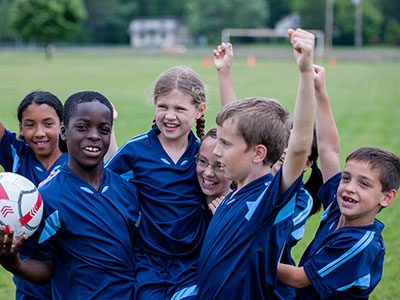 https://riseandshine.childrensnational.org/wp-content/uploads/2025/06/soccer-team-feature.jpg
300
400
webteam
https://riseandshine.childrensnational.org/wp-content/uploads/2017/11/childrens_riseandshine_logo.jpg
webteam2025-06-05 16:30:042025-06-06 09:45:10Supporting your young athlete’s attention and executive functions in sports
https://riseandshine.childrensnational.org/wp-content/uploads/2025/06/soccer-team-feature.jpg
300
400
webteam
https://riseandshine.childrensnational.org/wp-content/uploads/2017/11/childrens_riseandshine_logo.jpg
webteam2025-06-05 16:30:042025-06-06 09:45:10Supporting your young athlete’s attention and executive functions in sports


 Laura Gray, PhD, was a clinical psychologist at Children's National Hospital.
Laura Gray, PhD, was a clinical psychologist at Children's National Hospital.
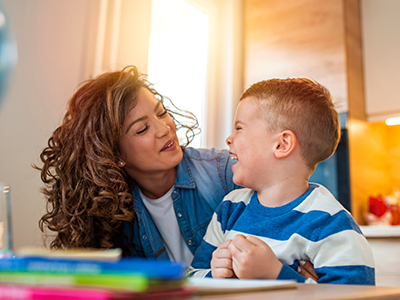



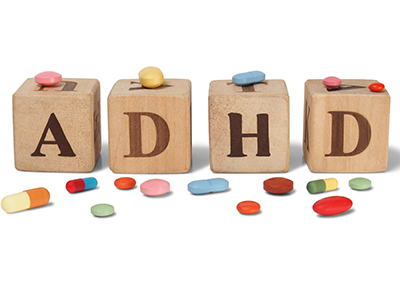
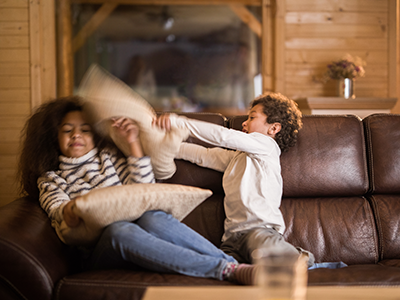

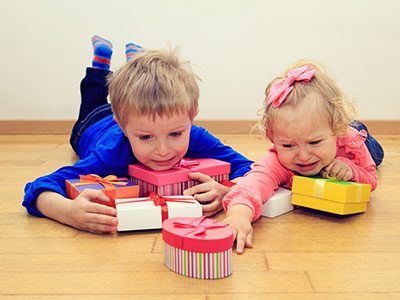
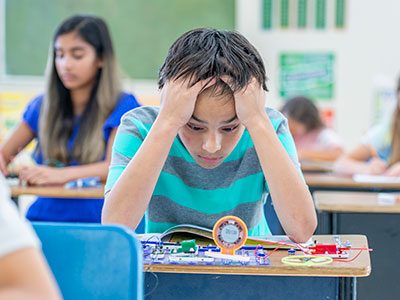

Leave a Comment
Want to join the discussion?Feel free to contribute!